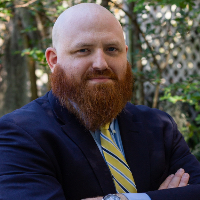 Grosse Tete Misdemeanor Lawyers, Louisiana
Grosse Tete Misdemeanor Lawyers, Louisiana
Sponsored Law Firm
-
 x
x

Click For More Info:
-
Babcock Trial Lawyers
10101 Siegen Ln #3-C Baton Rouge, LA 70810» view mapCriminal Defense We Want Your Injury Claim PAID NOW!
At Babcock Trial Lawyers, we work for our clients, maintaining our reputation of excellence as criminal defense & personal injury lawyers in Baton Rouge.
225-500-5000
Not enough matches for Grosse Tete Misdemeanor lawyer.
Below are all Grosse Tete Criminal lawyers.
Sponsored Lawyers
1-10 of 26 matches
Criminal, Felony, Ethics, RICO Act, Divorce & Family Law
Jacob Longman is currently the Managing Partner of Longman Jakuback, APLC. A botique litigation firm, Longman Jakuback specializes in complex and criminal litigation at the trial and appellate level in both state and federal court. Jacob spent time in both law enforcement and the military before attending law school. Before graduating from the Paul M. Hebert Law Center, he was President of the Student Chapter of the Louisiana Association of Criminal Defense lawyers, worked as a student investigator for the East Baton Rouge Public Defender's Office and was a judicial intern at the 19th Judicial District Courthouse. He career has taken him across the state of Louisiana. Several of these have set legal precedents in the field of criminal law. These include State v. Crockett, State v. McQuarter, State v. DiGeralmo, and State v. Steele. He is currently the President-Elect of the Louisiana Associate of Criminal Defense Lawyers.
(more)


 Stephen Babcock Baton Rouge, LA
Stephen Babcock Baton Rouge, LA Practice AreasExpertise
Practice AreasExpertise

